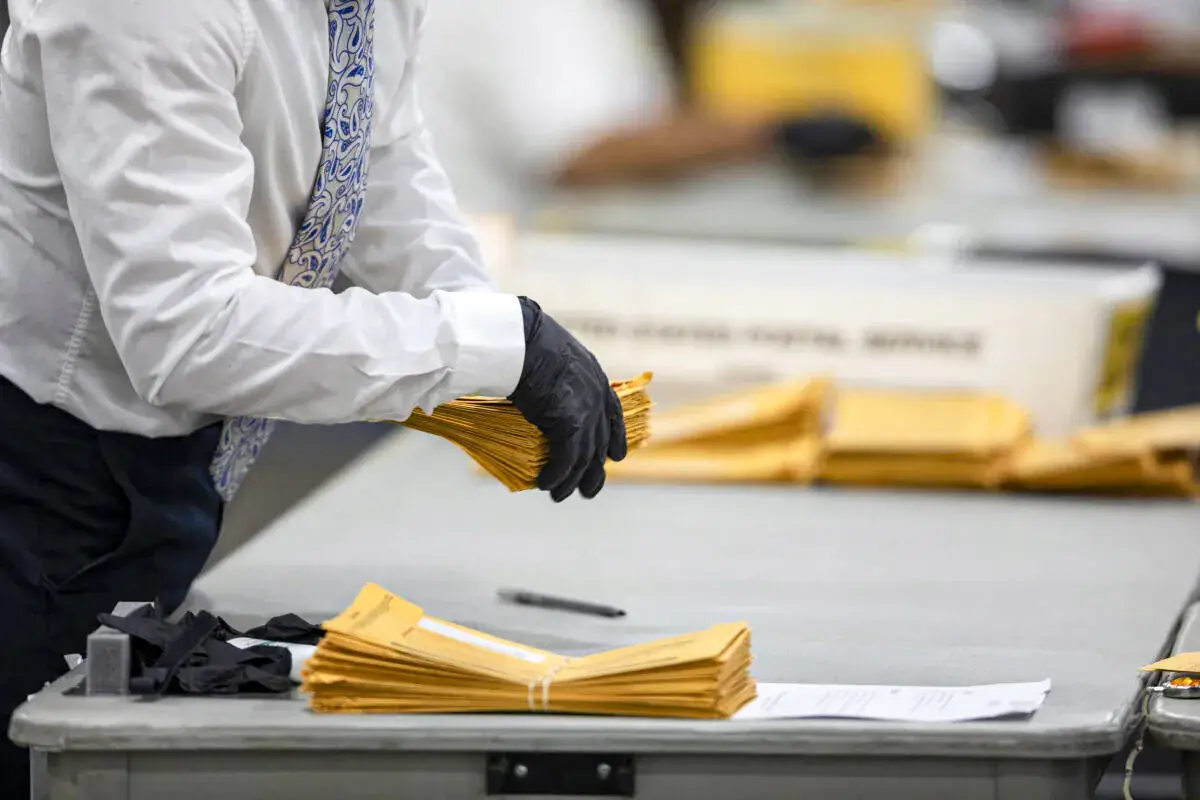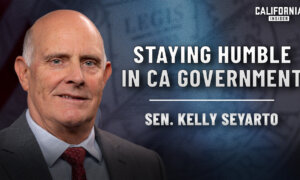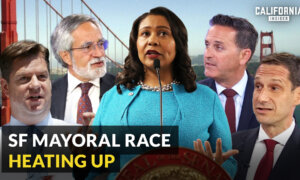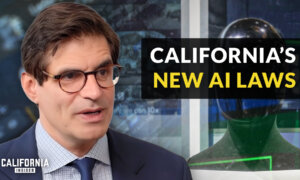ALEXANDRIA, Va.—A federal judge in Virginia has halted the commonwealth’s recent program to purge noncitizens from its voter rolls on an expedited basis.
Virginia’s program, announced on Aug. 7 by Gov. Glenn Youngkin, constituted a “clear violation” of the National Voter Registration Act’s (NVRA’s) prohibition on systematic attempts to clean up its voter rolls 90 days before an election, Judge Patricia Giles of the Eastern District of Virginia said during a hearing on Oct. 25.
Giles gave her order orally from the bench after another hearing on Oct. 24, during which the Department of Justice (DOJ) and private plaintiffs urged her to issue a preliminary injunction. The order comes just 11 days before voters head to the polls in November.
Youngkin responded by vowing to appeal Giles’s decision to the U.S. Court of Appeals for the Fourth Circuit.
“Let’s be clear about what just happened: only eleven days before a Presidential election, a federal judge ordered Virginia to reinstate over 1,500 individuals—who self-identified themselves as noncitizens—back onto the voter rolls,” Youngkin said on the social media platform X.
Giles’s order requires Virginia to issue guidance for counties to restore a list of individuals whose registrations had been subject to the program. During her remarks on Oct. 25, Giles said that eligible voters had been impacted by the program. She also raised concern that the commonwealth left no room for individualized inquiry, saying, for example, that individuals may have mistakenly told the Department of Motor Vehicles (DMV), which supplies data for Youngkin’s program, that they weren’t citizens.
Her order expires after Election Day and does not prohibit Virginia from attempting systematic removals of noncitizens outside of the 90-day period outlined by federal law. Nor does it prevent Virginia from attempting to remove individuals through individualized investigations into whether they were noncitizens.
Charles Cooper, an attorney representing Virginia, urged the judge to consider the potential confusion an injunction might inflict on the commonwealth’s election administration.
He acknowledged that the commonwealth’s removal process, which included the matching of data provided by the DMV, might create errors but that the risk of error was outweighed by the prospect that noncitizens’ votes might cancel out the votes of actual citizens.
Giles’s ruling followed a similar injunction from another federal judge in Alabama, where the DOJ sued over another state program aimed at removing noncitizens.
During her remarks on Oct. 25, Giles said that Virginians faced irreparable harm that couldn’t be resolved by them receiving a provisional ballot on Election Day. Using a provisional ballot, she argued, rendered them as “suspect.”
Youngkin initiated the effort on Aug. 7 with an executive order, claiming that state data indicated that 6,303 noncitizens were removed from its voter rolls between January 2022 and July 2024.
Cooper told the court that plaintiffs had waited too long to bring their complaint. He also suggested that the executive order was not meaningfully different than the program Virginia had been implementing prior to the 90-day period. Virginia maintained in a court filing that the governor’s order instructed agencies “to increase the frequency of their communications under the procedures already in place.”
The program notifies individuals if they’re identified as noncitizens while giving them an opportunity to challenge that identification within 14 days.
The DOJ’s complaint alleged that “at least some of those U.S. citizen voters are removed from the rolls because they do not respond to the Notice of Intent to Cancel within 14 days.”
It also cast doubt on the efficacy of the program, stating that “at least 43 of the 162 individuals identified and subsequently removed before July 31, 2024 ... for failure to respond to the Notice of Intent to Cancel were likely U.S. citizens.”
Much of the debate surrounded how the judge should interpret the NVRA, which was passed in 1993. The law states: “A State shall complete, not later than 90 days prior to the date of a primary or general election for Federal office, any program the purpose of which is to systematically remove the names of ineligible voters from the official lists of eligible voters.”
Virginia urged the court on Oct. 24 to reject other federal judges’ interpretations of the NVRA and said instead that the law’s phrasing shouldn’t be read as including noncitizens as proper registrants who were shielded by the 90-day “quiet period” provided under the law.
While speaking from the bench, Giles said that Virginia’s “reading is inconsistent with Congress’ intent” and cast doubt on the idea that Congress would have failed to include an exemption for noncitizens under the 90-day rule.
The rule prohibiting systematic removal contains exceptions for removals “at the request of the registrant,” “by reason of criminal conviction or mental incapacity,” and because the registrant had died.
Virginia’s program, the DOJ said, was not individualized enough and constituted the type of systematic change that NVRA sought to prohibit.
At multiple points during the hearing, Giles indicated skepticism of Cooper’s arguments—stating, for example, that she was concerned with the plain language of the statute. She also questioned his suggestion that she should depart from precedent under a 2014 case in the U.S. Court of Appeals for the 11th Circuit that similarly wrestled with the 90-day provision.
Both she and the DOJ pushed back on the commonwealth’s attempts to cite something known as the Purcell principle, which is a legal doctrine the Supreme Court established to generally forbid last-minute changes to election administration.
Virginia attempted to argue that Purcell would caution against the judge imposing an injunction so close to the election. The DOJ argued, however, that the two laws shared similar goals and that the Purcell principle shouldn’t be viewed as preventing the NVRA from halting Virginia’s program.













